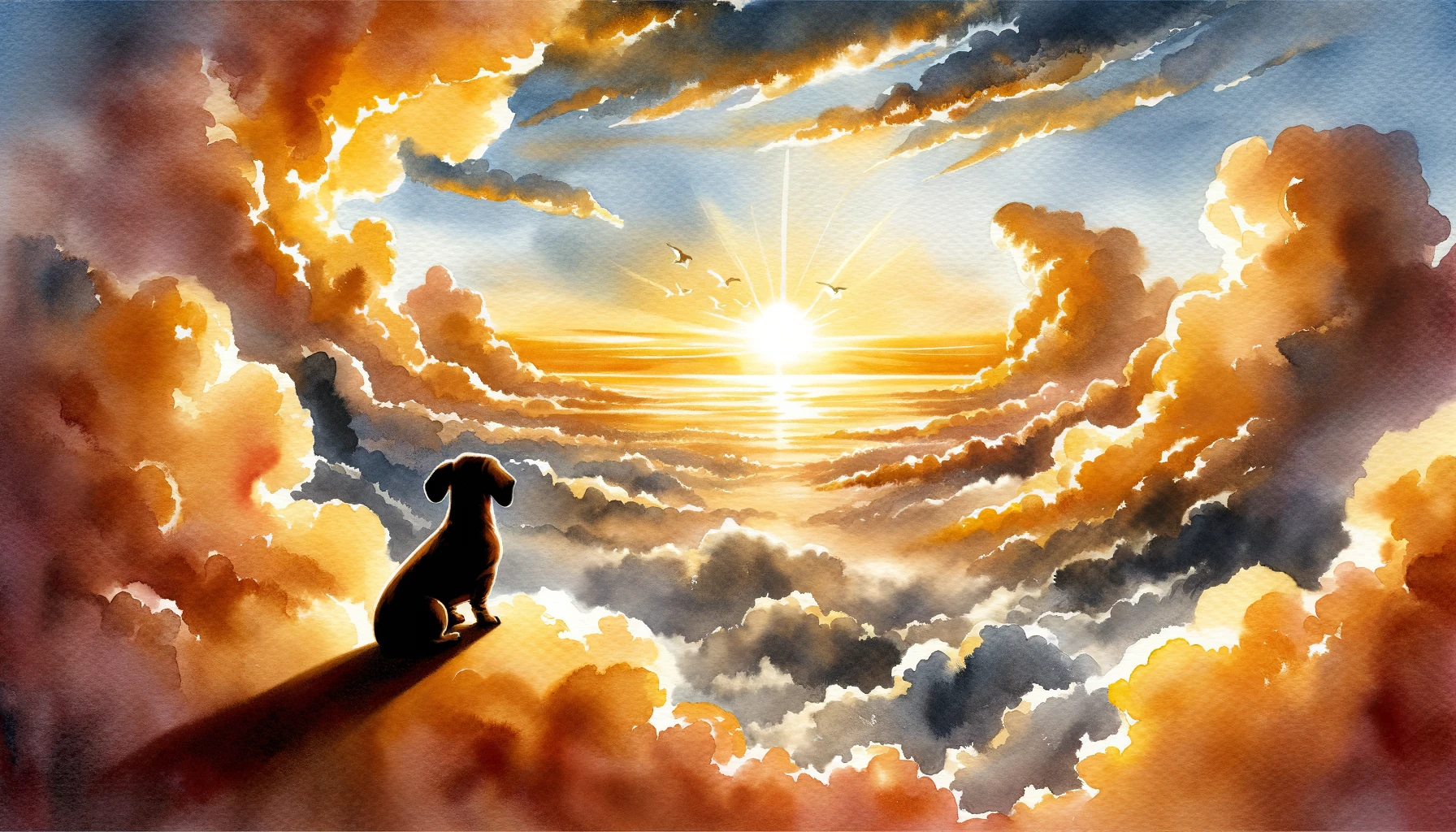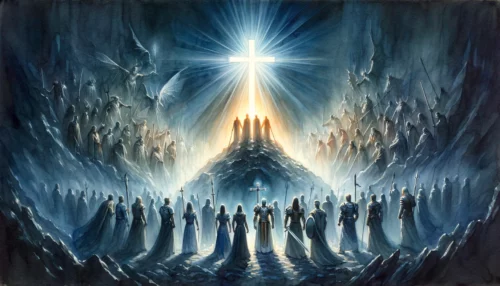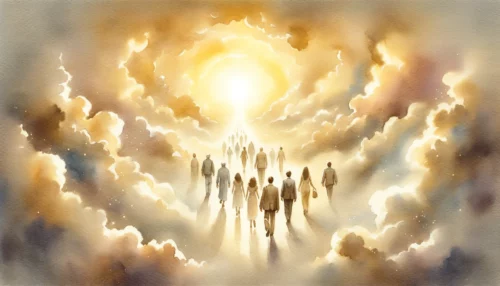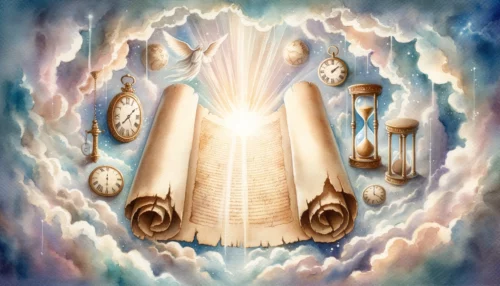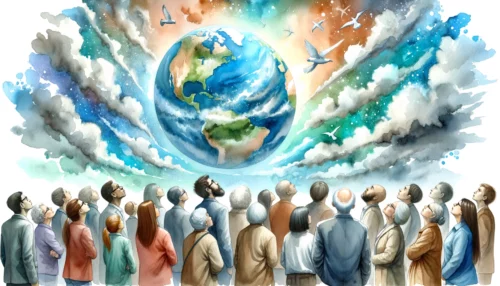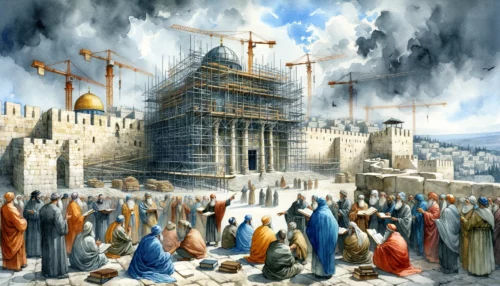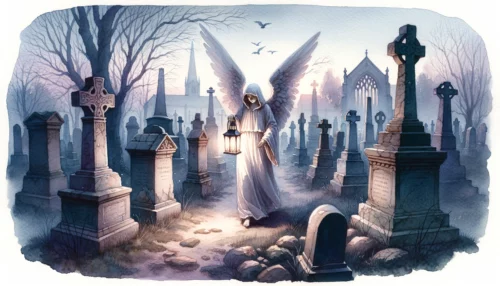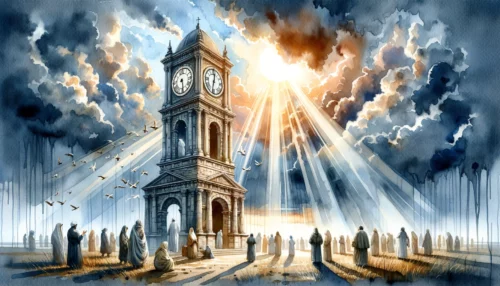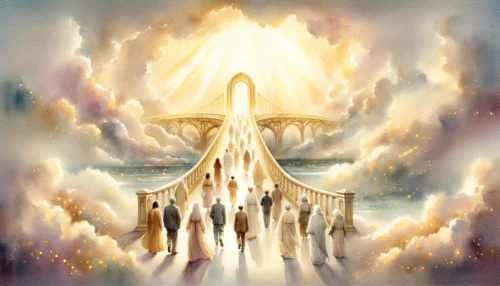The bond between humans and their pets can be profound, often considered akin to that shared amongst family members. In times of loss, it’s only natural for us to wonder about the afterlife of our beloved animals. Let’s turn to scripture and theology to find comfort and insight into this question, exploring the interconnectedness of all God’s creations, and the possible destinies that await our animal companions.
Animals in the Bible: Roles and Significance
Throughout the Bible, animals play many essential roles and often carry symbolic significance. They act as companions, sacrifices, signs, symbols, and even instruments of God’s miracles.
Genesis, the first book of the Bible, introduces us to the creation of animals. God created all living creatures—those that roam the land, swim in the sea, and fly in the sky (Genesis 1:20-25). This act of creation indicates the value God places on animals; they’re an integral part of His divine plan.
Noah’s Ark (Genesis 6:9-9:17) offers another significant representation of animals in the Bible. God commanded Noah to preserve two of every kind of living creature. This event demonstrates God’s desire to maintain the diversity of His creation and His compassion towards all forms of life. The dove that Noah sent out from the Ark, which returned with an olive branch, has become a universally recognized symbol of peace and hope.
In the book of Jonah, God uses a great fish to save Jonah (Jonah 1:17), underlining animals’ roles in carrying out divine purposes. Even in Revelation, the last book of the Bible, animals are depicted symbolically as creatures in heaven praising God (Revelation 4:6-9).
Throughout the scriptures, animals are also used metaphorically to teach lessons. In the Gospels, Jesus often used animals in His parables to communicate deep spiritual truths, such as the lost sheep (Luke 15:4-7), pointing to the value God places on each individual.
The Bible’s representation of animals extends to its portrayal of Christ himself. He is referred to as the Lamb of God (John 1:29), symbolizing his role as a sacrifice for humanity’s sins. In Revelation, Christ is also referred to as the Lion of the tribe of Judah (Revelation 5:5), signifying His majesty and power.
Animals are indeed integral to the biblical narrative. They are not merely part of the background but actively contribute to God’s purposes and illustrate spiritual truths. The Bible portrays animals with respect and acknowledges their value in God’s creation, from the first book to the last.
Animals have a significant role in the biblical narrative. From Genesis to Revelation, they are seen as part of God’s creation, integral to His divine plan, and used to symbolize and convey spiritual truths. The Bible shows God’s care and concern for animals, as exemplified in the story of Noah’s Ark, and uses them as instruments in miraculous events, such as Jonah’s salvation. Animals are utilized metaphorically in Jesus’ parables and in symbolic depictions of Christ. The consistent presence and value attributed to animals throughout the Bible affirm their importance in Christian faith and understanding.
The Theology of Salvation and Animals
Christian understanding of salvation is grounded in the life, death, and resurrection of Jesus Christ. This belief holds that humanity, fallen from grace due to sin, is redeemed and reconciled with God through Christ’s sacrificial death and triumphant resurrection (Romans 5:12-21). The question we might consider is how this understanding of salvation extends, if at all, to animals.
According to the Bible, sin entered the world through humans, not animals (Romans 5:12). Animals, being innocent of sin, aren’t in need of salvation in the same sense humans are. They do not possess the moral agency to choose between good and evil, a key element in the theological concept of sin.
Even though animals don’t share the human condition of sin, the Bible does acknowledge that they are affected by the consequences of human sin. In Romans 8:19-22, the apostle Paul explains that all creation, not just humankind, suffers from the effects of sin and eagerly awaits liberation. This suggests that, while animals aren’t morally culpable or in need of salvation from personal sin, they are part of God’s plan for cosmic restoration and renewal.
The Bible also underscores that animals belong to God (Psalm 24:1). Just as humans are God’s creation and loved by Him, so too are animals. This overarching sense of divine ownership infers that God cares for all of His creation, including the animals.
With respect to Jesus Christ, it’s noteworthy that His incarnation, life, and sacrificial death focus on human redemption. The Bible doesn’t specifically state that Christ died for the animals. His mission was centered on saving humankind (John 3:16), but it is within the larger context of restoring harmony to the entire creation, a harmony disrupted by human sin.
In Christian theology, salvation is a concept related to the fall and redemption of humans through Jesus Christ. The Bible teaches that sin entered the world through humans, not animals, so animals don’t require salvation in the same way humans do. Yet, they are affected by the repercussions of human sin and await, alongside all creation, liberation from its effects. Animals, like humans, belong to God, affirming that they are part of His care. Although Christ’s salvific work is primarily oriented towards humans, it forms part of a broader divine plan for the restoration of all creation.
The Eternal State of Animals: A Glance at Heaven and Earth
What becomes of animals in the afterlife is a question that the Bible does not answer directly. Yet, several passages hint at the possibility of animals being part of God’s eternal plan.
In the book of Isaiah, there’s a prophecy about a peaceable kingdom where predatory animals coexist in harmony with their prey (Isaiah 11:6-9). This passage has been interpreted by some to suggest a redeemed creation where animals have a place.
The apostle Paul, in his letter to the Romans, speaks about the entire creation waiting eagerly for the redemption of the children of God (Romans 8:19-22). Some theologians interpret this as a sign that all of God’s creation, including animals, will be renewed in the eschaton—the end times.
In Revelation, John describes a vision of a new heaven and a new earth (Revelation 21:1). While this passage does not explicitly mention animals, it portrays a future where the old order of things has passed away and all things are made new, suggesting a cosmic renewal that could potentially include animals.
None of these passages definitively state that individual animals go to heaven, yet they affirm the value of animals in God’s creation and suggest that they have a place in God’s ultimate restoration of all things. It’s consistent with the biblical view of a loving and just God who cares for all His creation.
Our primary hope, as Christians, lies in the resurrection of the dead and eternal life in Christ. While the question of pets in heaven is not answered definitively in the scriptures, it’s worth remembering that the God we serve is a God of surprises, who is able to do immeasurably more than all we ask or imagine (Ephesians 3:20).
The Bible does not provide a direct answer to the eternal state of animals. However, several passages hint at their possible inclusion in God’s eternal plan. Isaiah’s prophecy of a peaceable kingdom, Paul’s description of creation’s eager wait for redemption, and John’s vision of a new heaven and a new earth, suggest a broad cosmic renewal that could involve animals. The scripture affirms the importance of animals within God’s creation and his plan for ultimate restoration. As Christians, our primary hope is in eternal life through Christ, and we trust in a God who surpasses our understanding and expectations.
A Faithful Horizon
The Bible, rich in its portrayal of animals and their role within God’s creation, offers both comfort and hope. While the scriptures don’t provide a direct answer to the eternal destiny of our beloved pets and other animals, we have seen passages that affirm their value and hint at their potential place in God’s ultimate renewal of creation. As Christians, we look forward to the resurrection and the promise of eternal life in Christ, trusting that God’s plans for His creation are just, merciful, and go beyond our comprehension.
To further reflect on this topic:
- How does your view of animals change when considering them as part of God’s creation?
- How does the potential inclusion of animals in God’s eternal plan influence your understanding of His love for all His creation?
- What comfort or hope do you derive from contemplating the possibility of animals in heaven?
May the God who created all living beings, the God who is love, and who holds the universe in His hands, guide us in our faith and fill us with the peace that surpasses all understanding. His ways are higher than our ways, and His thoughts are higher than our thoughts. Let us trust in His divine plan, rejoicing in His love for all His creation.




